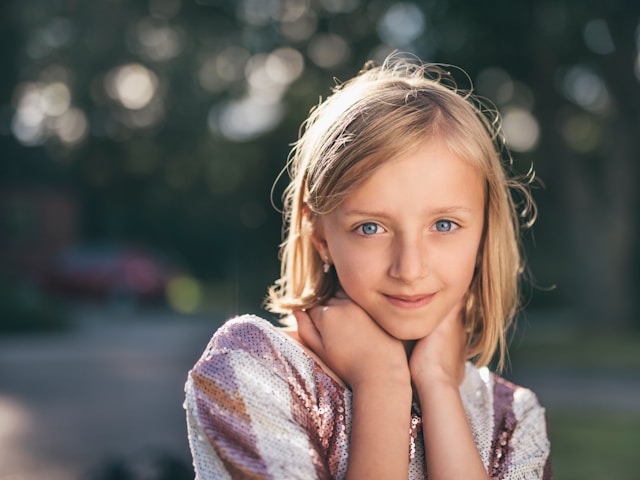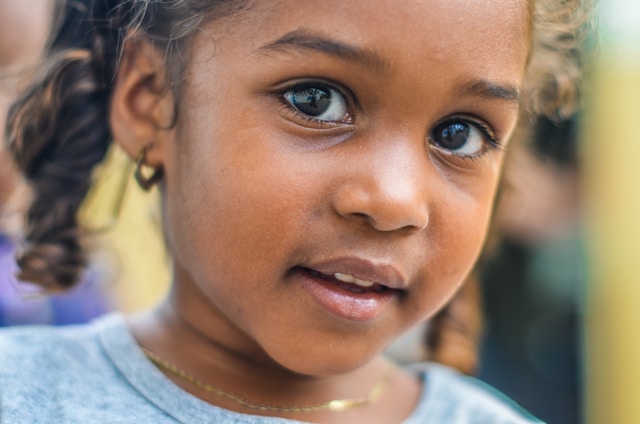Understanding Child Anxiety
At Palo Alto Therapy, we specialize in CBT for kids and teens, and parent-based programs like SPACE to help children overcome anxiety.
Anxiety is one of the most common mental health concerns in children, yet it is also one of the easiest to miss. Kids rarely say, “I feel anxious.” Instead, anxiety shows up through behavior, physical symptoms, or emotional reactions that can confuse parents and teachers.
A child might refuse to separate at school drop-off, complain of stomachaches every morning, or melt down at home after holding it together all day.
In a high-achieving region like Palo Alto and the broader Silicon Valley area, it is especially common for anxious children to appear capable, bright, and well behaved at school while experiencing intense worry behind the scenes. Families often internalize these struggles and try to manage them alone, but effective help is available.
Below is a clear and practical guide to what anxiety looks like in children, how to recognize when it is time for therapy, and what families can do to support their child’s emotional health.
Common Signs of Anxiety in Children at Home
Children express anxiety through actions long before they can articulate fear. Understanding the signs helps parents respond with clarity and compassion.
Clinginess or difficulty separating
Many anxious children want to stay near a parent at all times. They may refuse to play alone, follow adults from room to room, or panic at bedtime when asked to sleep in their own room.
Irritability, anger, or emotional outbursts
Anxiety does not always look like fear. It often shows up as irritability, frustration, or explosive reactions to small stressors. Parents may think their child is being oppositional when the child is actually overwhelmed.
Avoidance of tasks or routines
An anxious child may avoid homework, showering, after-school activities, or anything unfamiliar. Avoidance is one of the most common and reliable signs of anxiety in children.
Physical symptoms
Headaches, stomachaches, nausea, fatigue, or changes in appetite are extremely common. These are real physical sensations created by an overactive nervous system.
Perfectionism and fear of mistakes
Some children worry excessively about getting things “right.” This might show up as erasing over and over, refusing to try new activities, melting down over homework, or asking constant reassurance questions.
Common signs at school
Teachers may see a different picture than parents. School anxiety often shows up as:
Frequent visits to the nurse
Headaches and stomach pains often intensify at school because children have less control over their environment.
Avoiding participation
A child may avoid raising their hand, speaking in class, or participating in group work due to fear of embarrassment or making a mistake.
Difficulty with transitions
Shifts between activities, noisy hallways, or unexpected changes can overwhelm anxious children, especially those who are neurodivergent.
Perfectionistic academic behavior
Slow work completion, excessive erasing, or hesitating to turn in assignments often signal performance anxiety.
After school meltdowns
Many kids hold themselves together all day, then release all their tension at home. Parents may see the biggest signs of anxiety even when school reports are positive.
When to Seek Child Anxiety Therapy in Palo Alto
All children worry sometimes, especially during transitions or periods of stress. Therapy becomes important when anxiety begins interfering with daily life.
Consider seeking child anxiety therapy if:
- The child avoids school, social events, extracurriculars, or new situations
- Worries significantly disrupt sleep, appetite, or family routines
- Repeated reassurance does not calm fears for long
- Anxiety causes tantrums, irritability, or emotional shutdowns
- The child has frequent physical complaints with no medical explanation
- Family members have reorganized their routines around the child’s anxiety
- The child expresses fear of separation, harm, or “something bad happening”
Therapy is especially beneficial when anxiety has been going on for several weeks or months and is limiting the child’s independence or happiness.
In the Palo Alto area, families often seek therapy when academic demands, school transitions, or social pressures intensify anxiety. Early intervention provides children with coping tools they can use for years to come.
Families seeking CBT for kids in Palo Alto can choose flexible in-person or online sessions tailored to their child’s needs.
SPACE and parent coaching methods
SPACE (Supportive Parenting for Anxious Childhood Emotions) is one of the most effective treatment options for childhood anxiety. Unlike traditional child-only therapy, SPACE focuses on teaching parents how to reduce accommodations and respond to anxiety in supportive, confidence-building ways. Research shows that SPACE can be as effective for reducing anxiety symptoms.
How SPACE helps families
Reducing accommodations
Parents learn to gradually reduce well-intended behaviors such as staying in the room until a child falls asleep, answering endless reassurance questions, or avoiding activities the child fears. Reducing these accommodations increases the child’s ability to tolerate discomfort and build confidence.
Strengthening supportive communication
Parents practice validating the child’s feelings while still setting clear expectations. Statements like “I know this feels scary and I believe you can handle it” help children feel safe and capable at the same time.
Building healthy routines
SPACE and parent coaching help families create consistent morning, homework, and bedtime routines. Predictability reduces anxiety, especially for children who struggle with transitions.
Teaching parents to model coping skills
Instead of fixing the problem for the child, parents learn how to calmly guide them through it. Children internalize these models and begin to apply them themselves.
SPACE is especially helpful for younger children, children who resist talking directly with a therapist, and families who want practical tools they can apply at home.
Getting Help for Child Anxiety in Palo Alto
When anxiety is affecting daily life, early support can make a significant difference. Families in Palo Alto and the greater Silicon Valley area have several options for getting help quickly and effectively.
Reach out to a child anxiety specialist
A brief consultation can help determine whether your child would benefit from CBT, SPACE, family involvement, or a combination of approaches.
Consider both in-person and online options
With the demanding schedules common in Bay Area careers, flexible session formats allow families to stay consistent with treatment.
Get support for parents as well as children
Parent coaching often accelerates progress by helping adults understand what to change at home and how to support resilience.
Look for evidence-based treatment
Cognitive Behavioral Therapy (CBT), exposure-based methods, and SPACE all have strong research support and are central to effective child anxiety therapy in Palo Alto.
Take small steps while waiting for your first session
Create predictable routines, model calm breathing, and validate your child’s feelings without reinforcing avoidance. Small changes can reduce stress before therapy even begins.
Child anxiety therapy in Palo Alto: Support that creates lasting change
Anxiety may feel overwhelming, but it is highly treatable. Children who receive support early develop confidence, flexibility, and emotional tools that benefit them throughout their lives. Parents also gain clarity and direction, reducing the stress that anxiety brings into the home.
At Palo Alto Therapy, we specialize in CBT, parent coaching, and the SPACE method. Our approach is warm, practical, and rooted in evidence-based strategies that bring real relief. We work with children and families across Palo Alto, Menlo Park, San Jose, and the surrounding communities. Our therapists are highly trained in CBT for kids Palo Alto, SPACE, and parent coaching to help families find lasting relief.
If you are noticing signs of anxiety in your child and want expert support, we are here to help.
Book a free 15-minute consultation today and learn how child anxiety therapy in Palo Alto can support your child’s growth, confidence, and emotional well-being.



